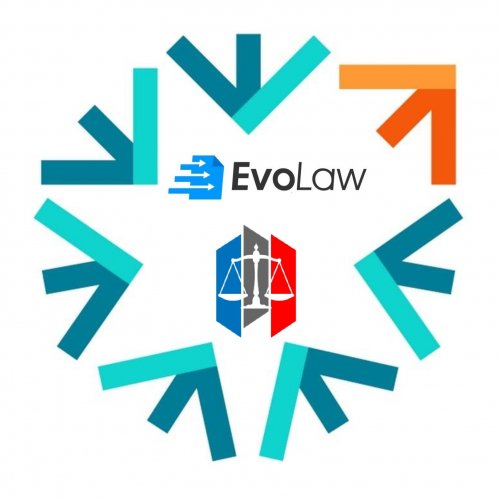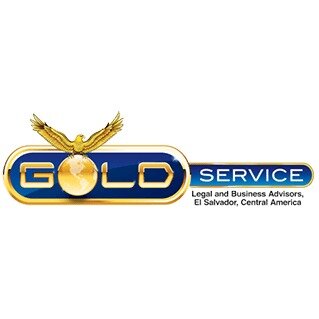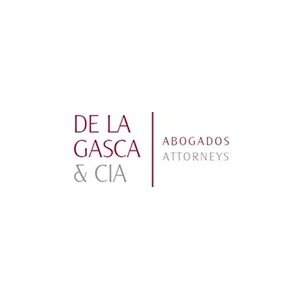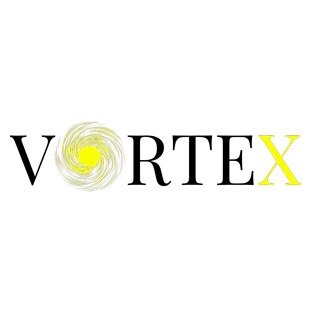Best Sanctions & Export Controls Lawyers in El Salvador
Share your needs with us, get contacted by law firms.
Free. Takes 2 min.
Or refine your search by selecting a city:
List of the best lawyers in El Salvador
About Sanctions & Export Controls Law in El Salvador
Sanctions and export controls law in El Salvador governs the movement of goods, technologies, and services across its borders in adherence to both domestic regulations and international commitments. These laws are designed to restrict certain types of trade with specific countries, entities, or individuals and control the export of strategic or sensitive items to protect national and international security, prevent illicit activities, and comply with United Nations and other multilateral agreements. Businesses and individuals involved in international trade must be aware of these controls to ensure compliance and avoid severe penalties.
Why You May Need a Lawyer
Engaging a specialized lawyer is crucial for navigating the complexities of sanctions and export controls in El Salvador. There are several situations where legal advice is critical, such as:
- When your business engages in the import or export of goods, particularly dual-use or sensitive items.
- If you are unsure whether your products or partners are subject to international sanctions.
- When responding to investigations or audits by Salvadoran authorities concerning export compliance.
- When establishing internal compliance programs and due diligence practices for cross-border trade.
- Facing penalties, seizures, or legal proceedings due to alleged noncompliance.
- If your business needs to secure export licenses or authorizations for controlled items.
A lawyer can help assess risks, interpret complex regulations, communicate with authorities, and ensure your activities align with both local and international legal frameworks.
Local Laws Overview
In El Salvador, the framework for sanctions and export controls primarily consists of:
- Customs Legislation: The Customs Code regulates the import and export of goods, including procedures for declaring goods and prohibitions.
- International Commitments: El Salvador abides by sanctions imposed by the United Nations and has adopted restrictions enacted by entities like the Organization of American States.
- Import and Export Controls: Certain goods, such as military equipment, chemicals, dual-use technologies, pharmaceuticals, and cultural property, are subject to licenses or may be banned from export or import.
- Financial Sanctions: El Salvador’s financial institutions are required to prevent transactions with sanctioned individuals or entities, in line with global anti-money laundering standards.
- Enforcement Agencies: The Directorate General of Customs (DGA) and the Ministry of Economy play key roles in regulation, licensing, and enforcement.
Noncompliance with these regulations can lead to fines, seizure of goods, cancellation of business licenses, or even criminal liability, depending on the severity of the violation.
Frequently Asked Questions
What are the main sanctions and export controls applicable in El Salvador?
El Salvador follows its own commercial and customs legislation and implements sanctions mandated by the United Nations and certain regional agreements. There are controls on arms, pharmaceuticals, technology, chemicals, and other sensitive goods.
Do I need a license to export goods from El Salvador?
For most general goods, no special license is required, but controlled items such as military equipment, pharmaceuticals, chemicals, or sensitive technology require an export authorization from the relevant authorities.
How can I find out if my business partner is subject to sanctions?
You should consult official lists from Salvadoran authorities, the United Nations, or other international bodies. A legal advisor can assist with due diligence and verifying parties involved in transactions.
What are the penalties for violating sanctions or export controls?
Penalties can include fines, seizure and forfeiture of goods, suspension of import-export privileges, and in some cases, criminal charges for severe violations.
Are there restrictions on exporting technology or software?
Yes, certain types of technology, software, and technical data related to military use or with potential for dual-use are controlled and may require special licensing before export.
Does El Salvador recognize international sanctions imposed by other countries?
El Salvador mainly enforces United Nations sanctions and its own enacted regulations but generally does not directly enforce sanctions imposed unilaterally by other countries, such as the United States or European Union.
Which agency is responsible for enforcing export controls in El Salvador?
The Directorate General of Customs under the Ministry of Finance, and the Ministry of Economy are primarily responsible for enforcement, licensing, and oversight of export controls.
Can I appeal a decision made by customs or export authorities?
Yes, decisions by customs or relevant regulatory authorities can be appealed through administrative and, if necessary, judicial procedures. A legal professional can guide you on the best course of action.
Do sanctions apply to financial transactions as well as goods?
Yes, financial institutions must comply with financial sanctions and are required to monitor and block transactions involving sanctioned individuals, entities, or countries.
How do I keep up to date with changes in export control laws and sanctions?
Subscribe to updates from government agencies, and work with a legal advisor familiar with local and international trade compliance to stay current with regulatory changes.
Additional Resources
Helpful resources and authorities for sanctions and export controls in El Salvador include:
- Directorate General of Customs (DGA): The primary authority for customs and export regulations.
- Ministry of Economy: Issues licenses and oversees trade, export controls, and compliance policies.
- Financial Investigation Unit (Unidad de Investigación Financiera): For matters concerning financial sanctions and anti-money laundering.
- Salvadoran Export and Investment Promotion Agency (PROESA): Provides guidance on export procedures and compliance.
- Chamber of Commerce and Industry of El Salvador: Offers seminars and legal resources for exporters and importers.
Many law firms in El Salvador also specialize in international trade and export control law and can offer tailored advice and assistance.
Next Steps
If you require legal assistance with sanctions and export controls in El Salvador, follow these steps:
- Gather all documents and information related to your import or export activities, including contracts, licenses, invoices, and past correspondence with authorities.
- Identify your specific concerns, such as potential violations, pending transactions, or questions about compliance requirements.
- Contact a reputable law firm or trade compliance consultant specializing in international trade and sanctions law in El Salvador.
- Book an initial consultation to discuss your case and receive a legal risk assessment and advice on compliance.
- Follow legal guidance to implement compliance programs, apply for necessary licenses, or address any pending penalties or investigations.
Taking proactive legal steps can help your business remain compliant, avoid penalties, and successfully navigate the complex field of sanctions and export controls in El Salvador.
Lawzana helps you find the best lawyers and law firms in El Salvador through a curated and pre-screened list of qualified legal professionals. Our platform offers rankings and detailed profiles of attorneys and law firms, allowing you to compare based on practice areas, including Sanctions & Export Controls, experience, and client feedback.
Each profile includes a description of the firm's areas of practice, client reviews, team members and partners, year of establishment, spoken languages, office locations, contact information, social media presence, and any published articles or resources. Most firms on our platform speak English and are experienced in both local and international legal matters.
Get a quote from top-rated law firms in El Salvador — quickly, securely, and without unnecessary hassle.
Disclaimer:
The information provided on this page is for general informational purposes only and does not constitute legal advice. While we strive to ensure the accuracy and relevance of the content, legal information may change over time, and interpretations of the law can vary. You should always consult with a qualified legal professional for advice specific to your situation.
We disclaim all liability for actions taken or not taken based on the content of this page. If you believe any information is incorrect or outdated, please contact us, and we will review and update it where appropriate.
Browse sanctions & export controls law firms by city in El Salvador
Refine your search by selecting a city.














